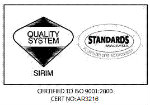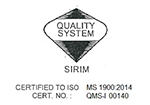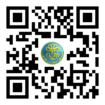Islamic Civilisation Treasures In Tun Ahmad Sarji’s Library
The Institute of Islamic Understanding Malaysia (IKIM) was founded in the last three decades (in 1992) with the goal of imparting an accurate understanding of Islam to the general population through academic and semi-academic programmes and activities. IKIM has conducted several studies and consultations over the last three decades, as well as organising training workshops or courses, expert lectures, conferences, and seminars on a national and worldwide scale. IKIM also produces books, journals, and magazines in line with that function.
The existence of Radio IKIM in 2001 ignited the role of the institution, which can now be reached from anywhere in the world. Then IKIM expanded its horizons by launching tvIKIM, an online TV (live streaming) concept. Of course, these two media serve their respective purposes as delivery means for IKIM’s programmes and activities.
Despite this, with IKIM’s efficiency and efficacy in carrying out its function, there is one aspect of IKIM that is the backbone for this institution’s continued excellence, and that is the IKIM Library. The IKIM library was established in the same year that IKIM began operating. This library only possessed or preserved 600 copies of literature at the time of IKIM’s establishment. In line with IKIM’s growth, the IKIM Library acquired and kept over 40,000 copies of the collection of books, journals, newspaper articles, seminar papers, and other materials in December 2022.
In accordance with this, the IKIM Library was officially renamed the Tun Ahmad Sarji Library (PTAS) to honour the late Tun Ahmad Sarji bin Abdul Hamid, the first and third Chairman of IKIM, while YAB Tun Abdullah bin Ahmad Badawi was the second Chairman of IKIM.
Every library has its own identity, charm, and unique features. The same is true for PTAS, whose position is critical in assisting IKIM’s role as a prestigious research institution and medium with such endeavours. Of course, as an Islamic institution, PTAS reading materials focus on manuscripts that provide Islamic input, although there is no denying that there are manuscripts that represent the modern world as well.
The Special Collection of Islamic Civilisations (KTI) is PTAS’s true speciality, yet it is seldom recognised to outsiders. KTI IKIM is a multilingual collection of material in the field of Islamic civilisation that includes art, history, language and literature, regional studies, comparative studies, and community studies, as well as rare and non-rare resources.
Rare materials, according to KTI IKIM policy, are materials written and published before or in 1950; books containing very valuable additional items such as signatures or handwritten notes of original authors or famous figures, among others; or/and books that are difficult to find, out of print, or no longer on the market.
IKIM acquired a special collection relating to Islamic civilisation in 2008, comprising 8064 copies, which included copies of books and journals in many sectors of Islamic civilisation, including rare works from the 17th, 18th, 19th, and half of the 20th centuries. Arabic, Turkish, Persian, Indian, North African, and Spanish are among the 20 languages accessible through these works. The scope of this collection is shown in the existence of many notable works, told and discussed in numerous languages as intermediary languages, ranging from architecture to decorative arts.
KTI IKIM also comprises lesser-known works such as weaponry and armour, textiles, ceramics, glass and metalwork operations, and Islamic art activities. These efforts are documented in KTI IKIM manuscripts, which allude to numerous Muslim regions and communities in the Arabian Peninsula, Turkey, Persia, North Africa, Africa, sub-Saharan Spain, the Indian Subcontinent, Central Asia, and the Malay Archipelago.
Rare, scholarly and antique books published from the 17th to the 19th century are the personal collection of academics and enthusiasts of Islamic civilization in the West, namely Professor Emeritus Dr. Maan Z. Madina (1927-2013) from the University of Colombia; Professor Dr. Marilyn Jenkins-Madina from the Department of Islamic Art at the Metropolitan Museum of Art, and Professor Emeritus Dr. Jerome W. Clinton (1937-2003) of Princeton University.
Providing KTI in PTAS IKIM is essentially a component of fardu kifayah implementation and responsibility, as the public can be informed about the presence of these priceless items. Islamic civilisation is a rapid growth or development of an individual group of people without reference to a particular country or culture. By extension, it is a civilisation drawn from the Quran and Hadith, safeguarded by the discretion of Islamic rulers and enhanced by regional customs. In actuality, civilisation refers to a country’s future human identity. Islamic civilisation, then, is a metaphor for the identities of Muslims living in distinct cultures, each with its own unique beauty and advantages.
In the discussion of civilization, of course it is very synonymous to talk about the background and history of a group of people, a nation and a country. In connection with this, we may also be saddened by the unrest that is happening in Gaza, Palestine at this time because the majority of Palestinians who are oppressed by the Zionist army are Muslims. Muslims are brothers in the same religion because we have a monotheism that same At this time, we are also bombarded with various information related to this crisis, including from the historical aspect. For this reason, KTI IKIM has been waiting for the history and civilization of Palestine (as well as other Islamic civilizations) to be transparently explored through libraries or resource centers such as PTAS IKIM.




